Faculty Research
Faculty in the Department of Sciences and Mathematics believe that independent mentored research provides students with powerful, unique experiences that facilitate student growth and learning beyond the classroom. Several faculty members in the department carry out research projects in which they involve interested students.
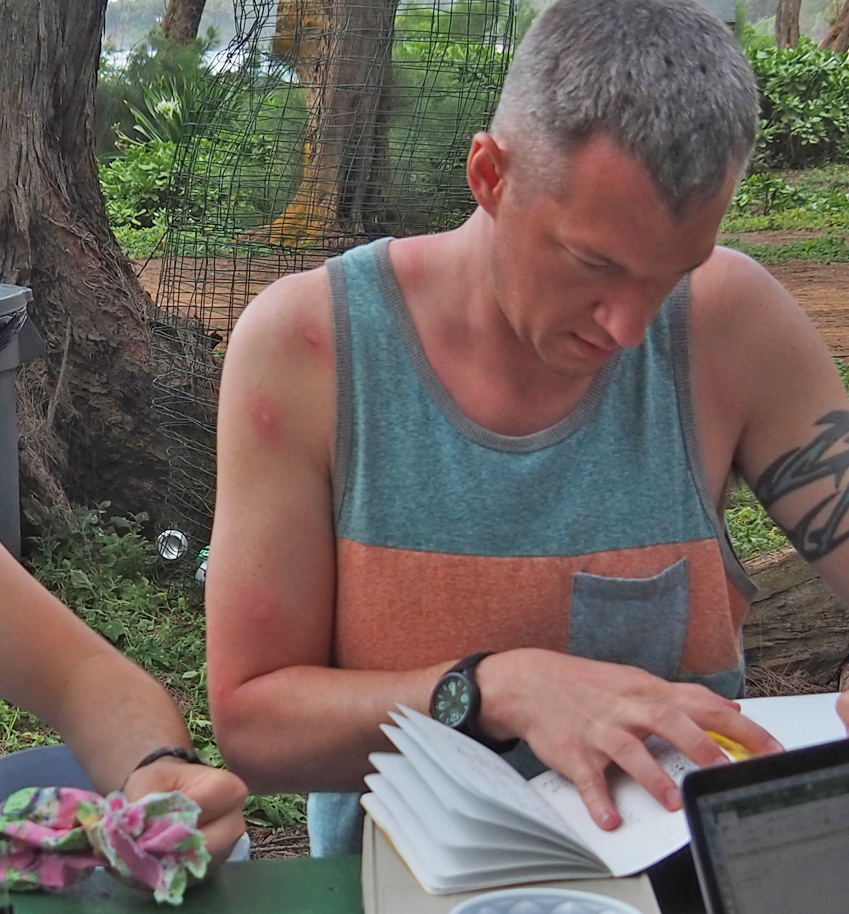
Dr. Travis Hagey
Dr. Travis Hagey's lab asks why animals are shaped the way they’re shaped, focusing on how animals move and how they have adapted to their environments. Students in Dr. Hagey's lab work mostly with lizards and use a combination of laboratory, field, and museum-based research methods.One of Dr. Hagey's students, Bailey Howell, recently co-authored a publication with him that was published in Integrative Organismal Biology, Volume 4, Issue 1, 2022. It was titled, "Geometric Morphometrics Reveal Shape Differences in the Toes of Urban Lizards".
His web site is: https://travis-hagey.com
His web site is: https://travis-hagey.com
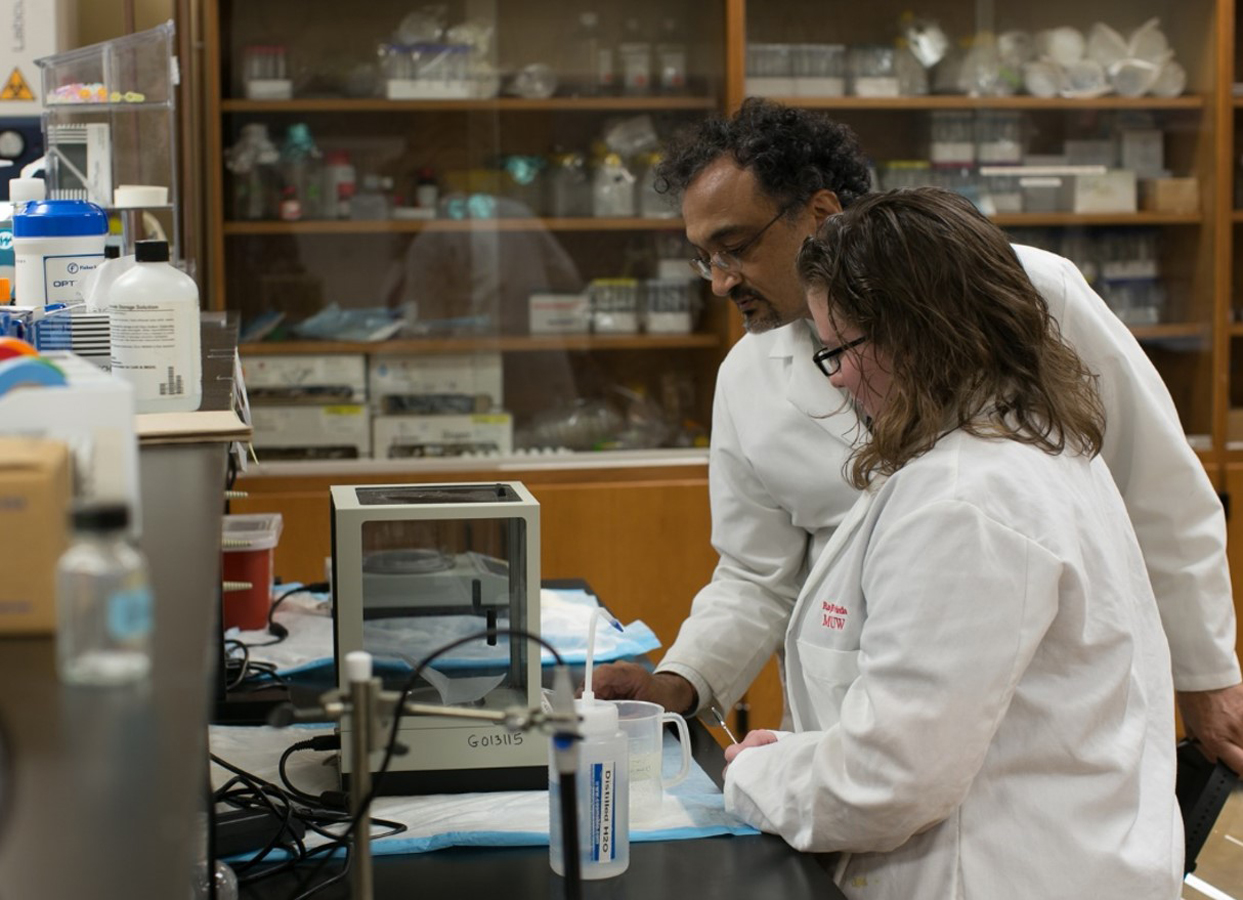
Dr. Ghanshyam Heda
Dr. Ghanshyam Heda studies the regulation and expression of the Cystic Fibrosis Transmembrane conductance Regulator (CFTR) protein that functions as a chloride ion channel on many epithelial cells. A mutated CFTR causes the genetic disease cystic fibrosis. Students in Dr. Heda’s lab test compounds on cultured human lung cells to determine their effects on increasing and sustaining CFTR expression on plasma membrane of cells, using techniques from protein biochemistry, molecular biology, and immunocytochemistry. Dr. Heda published his research with undergraduates as co-authors in peer-reviewed journals. One of his research even appeared on cover page of a well known international journal Analytical Biochemistry.
https://www.researchgate.net/profile/Ghanshyam_Heda
https://www.cies.org/grantee/ghanshyam-heda
https://www.researchgate.net/profile/Ghanshyam_Heda
https://www.cies.org/grantee/ghanshyam-heda
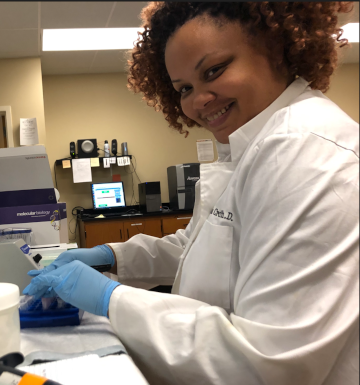
Dr. Davida Crossley
Dr. Davida Crossley’s lab studies the dimorphic fungus Histoplasma capsulatum that causes the respiratory infection histoplasmosis. She studies the non-pathogenic (disease causing) strains to gain knowledge of what occurs in the pathogenic strains. The fungi exist in contaminated soils as mold, and and in mammalian host as yeast. The change in temperature is one factor that can allow the fungi to switch from mold to yeast or yeast to mold. Research with students in her lab, focus on gene regulation of genes that are involved in the shifting of the fungi from yeast to mold, and from mold to yeast. Studies with students also are involved in identify genes that allow the fungi to survive in stressful conditions that could occur in either the human host or in the soil. Identifying what allows the fungi to survive in these conditions could be used to help combat histoplasmosis. Dr. Crossley’s students present their research findings at scientific conferences, and aid in publishing their data in national peer-reviewed journals.
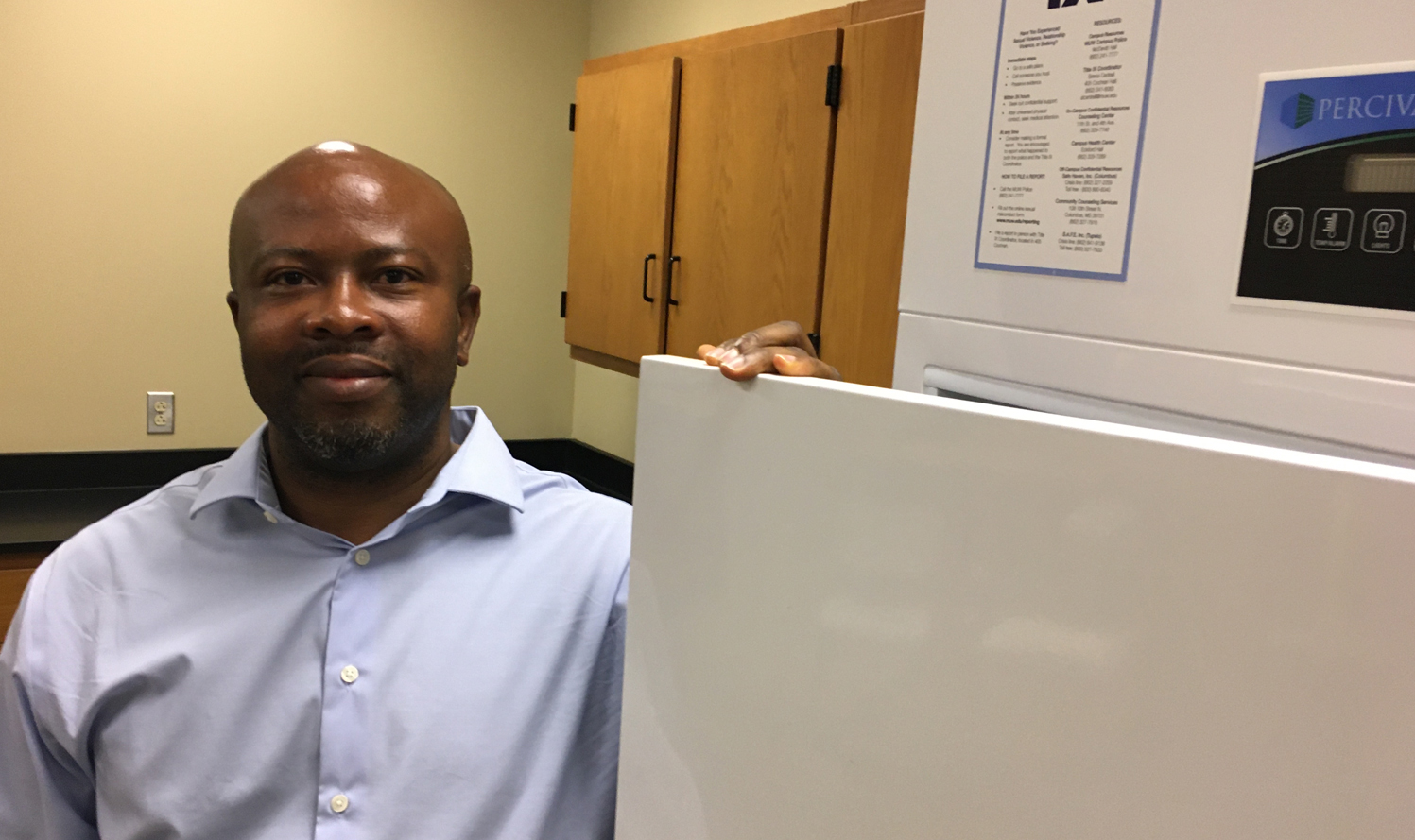
Dr. Benjamin Onyeagucha
Dr. Benjamin Onyeagucha does research that is focused on the identification and characterization of biomarkers and molecular drivers in cancer for the purpose of developing novel therapeutic strategies for breast cancer patients. Students in Dr. Onyeagucha's lab learn both basic and translational techniques while utilizing interdisciplinary approaches in biomedical sciences.
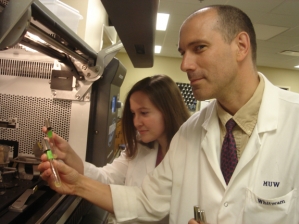
Dr. Ross Whitwam
Dr. Ross Whitwam works on the yeast prion [URE3]. Prions in mammals cause delibilating neurodegenerative diseases. Prions are unique in that they can be transmitted as infectious agents, or can be transmitted genetically, or can arise spontanteously. Prions in yeast are a model of mammalian prions but pose no risk of infecting humans. Students in Dr. Whitwam's lab do molecular biology work on the spontaneous formation of yeast prions.
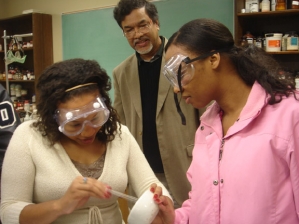
Dr. Jiben Roy
Dr. Jiben Roy works of the chemistry of herbs, spices, and other natural products. Students in Dr. Roy's lab do extraction, separation, and identification using GC-MS and IR spectrophotometry. Dr. Roy also has an interest in organic syntheses and the analysis of volatile organic compounds.
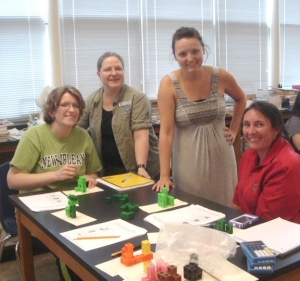
Dr. Bonnie Oppenheimer
Dr. Bonnie Oppenheimer studies attitudes about teaching mathematics and preservice teachers' arithmetic skills at Mississippi University for Women, and women's images in the media in a collaborative research group based in the Communication Department at Mississippi State University. Students under Dr Oppenheimer's direction help with the statistical analyses of human-based research, and become part of the writing team.